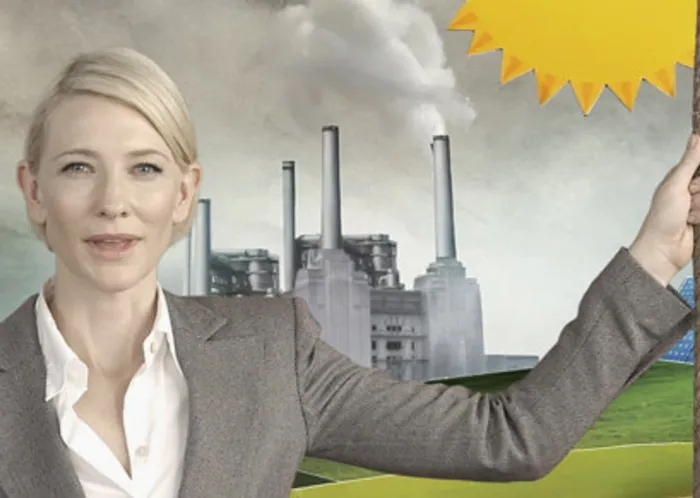Climate debate turns nasty

Academy Award winner Australian Cate Blanchett is seen in a TV commercial of "Say Yes to the carbon tax" Academy Award winner Australian Cate Blanchett is seen in a TV commercial of "Say Yes to the carbon tax"
Singapore - Australian climate scientists say they have received death threats, emails with sexual slurs and other insults in a surge of abuse that appears to be a coordinated campaign of intimidation.
The threats have come as the government tries to step up the fight against climate change by trying to win agreement on a deeply unpopular scheme to price carbon emissions, which the political opposition says will cost jobs and raise fuel and power prices.
Anna-Maria Arabia of the Federation of Australian Scientific and Technological Societies said she received a death threat on Monday and that police were investigating the threat.
“There's no doubt that there is an orchestrated campaign,” Arabia told Reuters.
“I think there are political motivations, people who have a view for and against the response to the climate science and are using as their outlet an attack on the scientists. So it may be people who don't agree that there should be a carbon tax.”
Climate scientists globally have been attacked in emails and blogs and for several years, with campaigns in the United States linked to funding by big energy and chemical firms fearing costs from policies that curb greenhouse gas emissions.
Others have been linked to people railing against what they perceive as governments impinging on their freedoms.
But the cyber abuse seems to have stepped up in Australia at a time when the country has been ravaged first by drought, deadly bushfires and then floods that killed dozens of people and cost the economy billions of dollars, prompting debate on the real cause of the extreme weather.
“I don't think it's an accident that this nastiness is emerging at a time of extreme political debate in this country about what issues Australia as a society should take to minimise the impact of climate change,” said Suzanne Cory, president of the Australian Academy of Science.
The Academy, a fellowship of Australia's top scientists, has condemned the abuse of climate scientists and Cory called for perpetrators to be exposed.
She said many Australians were conflicted about climate change, despite the increase in bad weather.
“Many Australians are very concerned about doing something on climate change. On the other hand, many Australians are feeling the pinch financially and they worry about arguments that say they will be worse off,” she told Reuters.
Corey said many Australians were vulnerable to people seeking to take advantage of the confusion, given the often complex nature of climate change science.
The Academy, the country's top science and research body the CSIRO and the government have stepped up a public education drive about the science and impacts of global warming, such as more extreme droughts, floods, fires and rising seas.
This month, the government said coastal assets such as roads, rail and commercial buildings worth $226 billion were at risk from rising sea levels. On Monday, the CSIRO formally launched a website that allows the public to see raw greenhouse gas measurement data - http://www.csiro.au/greenhouse-gases/ .
The site shows measurements of carbon dioxide, methane and other gases from a remote location in Tasmania. The data shows that levels of carbon dioxide, the main greenhouse gas, have risen 40 percent since the 1800s because of human activities and are at the highest level in more than one million years.
Efforts to price carbon emissions in Australia, a top coal exporter and heavily reliant on coal for power, have polarised the political debate, pitting the government's efforts to rein in rising emissions with an opposition scare campaign on costs.
The Federation of Australian Scientific and Technological Societies has launched a campaign to demand policymakers respect science. In the meantime, some scientists have moved to more secure offices or limited their public engagements. - Reuters